Who We Are
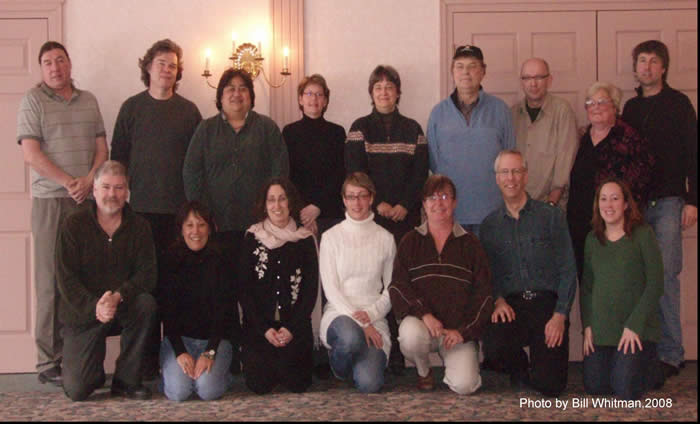
COMMUNITY PARTNERS
Acadia First Nation
Acadia First Nation is comprised of five aboriginal reserves around southwest Nova Scotia . The Mi'kmaq in this region have historically used the coastal areas, as well as inland waterways, for food, transportation and cultural activities. In particular, Acadia has long been involved in food fisheries, and has participated in commercial aboriginal fisheries since the 1999 Marshall decision. The fishery is operated not only as a revenue generating business, but also as a vehicle for sustainable development, and an opportunity for employment and education. Fishing activities are managed through Kespuwick Resources, which has sought a diversified base of resource access for the fishery.
Acadia First Nation website

Norma Brown is the Assistant to the fisheries director for Acadia First Nation and works to administer and manage the food fishery. In this position, she has conducted dockside monitoring of catches, organized training courses for fishers and participated in scientific research with DFO and summer students. As well, she has helped develop a fisheries management plan for the food fishery that addresses conservation measures, a scientific monitoring program and how access and sharing of the fishery occurs. She participated in the Turning the Tide forum which involved First Nation, commercial fishing associations and researchers for the discussion of successes and challenges in community-based fisheries management. Within her community Norma has conducted workshops on traditional Mi'Kmaq basket weaving; an important means by which to transfer Mi'kmaq knowledge and contribute to cultural identity.
Bear River First Nation
Bear River First Nation , like Acadia, is one of the thirteen First Nation communities in Nova Scotia . Bear River First Nation is located in a forested area near the coast; streams flow through the community lands toward the Annapolis Basin and the Bay of Fundy . Given this connection to its resource base, Bear River First Nation has a strong interest in environmental conservation and rehabilitation, both terrestrial and aquatic, and in studies of the traditional uses by Mi'kmaq people of the land and sea. Community members take part in food fisheries and the First Nation as a whole is exploring options for sustainable commercial fishing within the Bay of Fundy.
Bear River First Nation Website

Sherry Mae Pictou graduated with a Master of Arts Degree from Dalhousie University in 1996, where she specialized in Critical Adult Education. She has worked for the Bear River First Nation in various capacities with a focus on community-based approaches to natural resource management. Sherry has also participated in the Coady International Institute Community Based Resource Management Certificate Program at Saint Francis Xavier University in 2004. Ms. Pictou is a Board of Directors member of the Bay of Fundy Marine Resource Centre, Bear River First Nation Culture and Heritage Centre and the North American representative on the Coordinating Committee for the World Forum of Fisher Peoples.
Fundy Fixed Gear Council
The Fundy Fixed Gear Council (FFGC) is a groundfish management board that manages groundfish quota for their membership in an area on the Nova Scotian side of the Bay of Fundy, from Digby County to the New Brunswick border. The FFGC is composed of two member organizations (BFIFA), the Maritime Fishermen's Union (MFU), Local #9, and the Bay of Fundy Inshore Fishermen 's Association. For this CURA, the FFGC will become the partner institution, enabling both the BFIFA and the MFU to be involved, and reflecting the broader scope required within this CURA. The FFGC brings their experience in collaborative research, partnership and alliance building. The FFGC is currently involved in the formation of local integrated management bodies such as the St. Mary's Bay and Annapolis Basin Working Groups, and is also participating in ongoing projects that will be very useful for the evaluation and assessment goals of this CURA proposal.
The Fundy Fixed Gear Council Website

Hubert Saulnier has been a fisherman for 36 years, and has operated his own fishing enterprise for 34 years. He has been involved in community based resource management issues and organizational initiatives since joining the Maritime Fishermen's Union 25 years ago. Hubert is currently President of local 9 South West Nova, which is the largest lobster fishing area (34) in Canada . He has been very active with the Fundy Fixed Gear Council, where he has acted as chair and co-chair since its founding in 1996. Here he assisted in the development of a management board for ground fish allocation. Mr. Saulnier has also been a key player in recognizing First Nations communities as members of the fishing community since the Marshall rule, and worked toward achieving goals compatible with non-aboriginal fishing communities.

Carolea White, Upper Clements, NS, has been the Office Manager for the Fundy Fixed Gear Council and the Secretary/Treasure for the Bay of Fundy Inshore Fishermen 's Association since 2006. She has volunteered with the Bay of Fundy Marine Resource Centre since 2004, acting as the Vice Chairperson from 2008 to 2009. Carolea is also the President of Clements Consolidated Recreation Commission and the Secretary for Upper Clements Community Hall.
Fundy North Fishermen's Association
The Fundy North Fishermen's Association (FNFA) is a membership organization that represents inshore fishermen in South Western New Brunswick. The Association works to maintain fishing livelihoods as a vital component of coastal communities. FNFA has been involved in groundfish, scallop, and lobster research and is presently engaging in a capacity-building process to strengthen their organization. As part of the Coastal CURA project, FNFA plans to conduct an economic assessment of their inshore fisheries. The Association is also planning to engage in a reflective and research process to explore the potential for integrated management in Saint John Harbour where large-scale industrial development projects are limiting fishermen's access to fishing grounds and wharves. This activity is directly impacting fishing livelihoods in surrounding communities.

Maria Recchia has worked with inshore fishermen in the Bay of Fundy for the past 12 years. Having grown up in a coastal area, she has had a close connection to the sea. At a young age, her family spent many days digging clams, picking mussels, and harvesting periwinkles and quahogs for their own consumption. Maria has worked with fishermen in Massachusetts, Maine, New Brunswick, Nova Scotia, and Southern Italy. Today she works for a local fishermen's association in her home in Southwestern New Brunswick . She is a strong believer that there are good local strategies to maintain healthy fish stocks and healthy coastal communities. We need to develop a culture in government and the general public that respects and supports the knowledge, experience and insight of coastal people to play a real and important role in marine resource management.
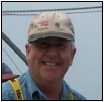
Greg Thompson has been a commercial fisherman for 34 years. As a child, he spent time boating with his father and used his outfit for a summer job while attending university. He was unable to fish at that time due to ill health. Greg currently fishes lobster, scallops and ground fish from a 45' fiberglass boat, the "MACUSELA". He is the fourth generation of Thompsons to fish from Dipper Harbour . Mr. Thompson was president of Fundy North Fishermen's Association at its inception 28 years ago and has worked with the association since, holding various positions. He is a supporter of community-based management and likes cooperatively seeking solutions to the challenges facing the fishing industry, rather than looking for a regulated solution.
Mi'kmaq Confederacy of Prince Edward Island
The Mi'kmaq Confederacy of Prince Edward Island is an organization that links together the two First Nations of Prince Edward Island, Abegweit and Lennox Island . Established in 2002, the MCPEI represents the collective interests of the PEI Mi'kmaq to foster a society that respects and sustains their existing aboriginal and treaty rights. Both communities participate in food fisheries and commercial fishing, and are involved in aquaculture and harbour management activities. The Lennox Island Development Corporation (LIDC) has a processing facility; hold and manage rental properties; have a marine bio-sciences research and development facility; and, are developing a Mi'kmaq fisheries product branding and marketing strategy. Together the two communities are developing integrated coastal management, notably in Malpeque Bay ; supporting such initiatives, they have created an Integrated Resource Management Directorate in the MCPEI, to support ecosystem-based resource management, building on past First Nation experiences in fishery management.
MCPEI website
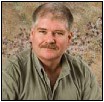
Randy Angus has over 30 years experience in the Maritimes fishery and aquaculture industry. He has extensive experience in working with the public and private sectors in resource management, and has a diverse background covering a variety of organizations. He has worked in the administration of research and hatchery facilities, and has over 6 years of experience in community and sustainable development projects. Randy has experience in planning, negotiating, and financing multi-partner projects. He also has experience in regional development projects, and negotiations with all levels of government.
Bay of Fundy Marine Resource Centre
The Bay of Fundy Marine Resource Centre is a not-for-profit, community-based institution, offering services, facilities and technical support to all aspects of the Bay of Fundy marine economy and eco-system. It was established in 1997 to give the Digby and Annapolis region the capacity to take on a greater role in the integrated management of its coastal resources. It will play a coordinating and knowledge mobilization role within this CURA, and will serve the key role of providing a 'safe space' for research interactions, conflict resolution and relationship building.
Bay of Fundy Marine Resource Center Website

Arthur Bull is a musician and poet from Digby Neck, Nova Scotia . He is currently the Executive Director of Saltwater Network, and an Associate Staff Member of the Bay of Fundy Marine Resource Centre. He was formerly the Chair of Nova Scotia's Coastal Communities Network, the Co-Director of the Rural Communities Impacting Policy project, the Chair of the Digby Neck Community Development Association, and has sat on the boards of numerous local, provincial and national organizations. He has also worked with inshore fishermen in the capacity of Executive Director of the Fundy Fixed Gear Council, and President of the Bay of Fundy Inshore Fishermen 's Association. Before working with fisheries organizations, he worked in a community-based adult literacy field in Ontario for 15 years.
ACADEMIC PARTNERS
Saint Mary's University
Saint Mary's University brings to the CURA a strong tradition of interdisciplinary research, notably on coastal and marine themes, and within its expanding environmental program. It brings as well its emphasis on community service and knowledge dissemination (e.g., a longstanding Fisheries and Coastal Lecture Series, led by the CURA Director) and its knowledge mobilization role as a home base of Canada's Ocean Management Research Network, and the Community-Based Environmental Monitoring Network, which links Maritimes governmental, academic and community participants.
www.smu.ca

Dr. Tony Charles holds a cross-appointment with the School of Business and the Environmental Studies Program at St. Mary's University. His work involves interdisciplinary studies of natural resource management, notably in fisheries, aquaculture and coastal areas. As well, Tony coordinates the University's Fisheries and Coastal Lecture Series. He is the Director of the Ocean Management Research Network, based at the University of Ottawa , that works to support research on ocean uses and management. Tony serves as an advisor to fishery and community groups in Atlantic Canada and works regularly with many international organizations. In 2001, he was awarded an international Pew Fellowship in Marine Conservation in recognition of his work for fishery conservation and fishing communities locally and globally.
University of New Brunswick
The University of New Brunswick has a particular strength in property studies, and GIS, as well as marine anthropology. The department of anthropology has strong links with the International Commission on Folk Law and Legal Pluralism, which connects academics and practitioners in examining interactions of multiple legal regimes (international, state, business, religious and local law). Members of the Commission work on issues of indigenous, ethnic and social group relations with the state and with international actors in many parts of the world. UNB offers Masters studies in marine anthropology as well as an interdisciplinary PhD program.
www.unb.ca

Dr. Melanie Wiber is Full Professor in the Department of Anthropology, University of New Brunswick . Her research focuses on economic and legal anthropology, especially in the area of natural resource management. She is a board member for the International Commission on Legal Pluralism (1999 to the present), and has served as Commission Secretariat (2001-2006). Her recent publications have focused on new forms of property rights in quota management systems and in genetics, on community-based management in the fisheries, and on gender issues. Dr. Wiber has collaborated extensively with other team members, including Tony Charles, John Kearney, Arthur Bull and Fikret Berkes, on participatory research. Dr. Wiber serves on the Management Committee, contributes to overall direction and management of the CURA project and in particular, is responsible for graduate students at the University of New Brunswick who are working on CURA research. She also manages and plans, in conjunction with the other co-applicants, the regular workshops and other project outputs.
PAST STAFF

Madelaine Patterson is our Coastal Cura Project Coordinator. Originally from the West Coast of Vancouver Island, she has a background in Geography and Environmental Studies from McMaster University, and recently completed her M.A in Environmental Security Studies from the UN Mandated Graduate School for Peace and Conflict Studies in Costa Rica, specializing in resource scarcity and human rights issues.
OUR COLLABORATORS

Dr. Fikret Berkes, University of Manitoba , holds a PhD in Marine Sciences, and works at the interface of natural and social sciences. He has devoted most of his professional life to investigating the relations between societies and their resources, and to examining the conditions under which the "tragedy of the commons" may be avoided. He works on theoretical and practical aspects of community based management, co-management, and traditional knowledge. Dr. Berkes' research focuses on common-property resources, with current emphasis on co-management, complex systems and resilience, and the ways in which societies use environmental knowledge and develop institutions dealing with sustainability. He holds a Tier I Canada Research Chair (2002) and the title of Distinguished Professor (2003).

John Kearney is a social anthropologist with 28 years of experience as a researcher, organizer and policy advisor for fish harvester and community organizations. He has worked extensively throughout Atlantic Canada and has served as a policy advisor for the Canadian Council of Professional Fish Harvesters, the Maritime Fishermen's Union , the Fundy North Fishermen's Association, and the World Forum of Fisher People. Since 2000, his work has focused on building capacity for community-based fisheries and integrated coastal management in Canada , India , Sri Lanka , and the Philippines .

Dr. Evelyn Pinkerton of the School of Resource and Environmental Management, Simon Fraser University, is a maritime anthropologist who has integrated common property theory and cultural/political ecology in considering the role communities play in the management of adjacent renewable natural resources. She has played a key role in developing the theory and practice of power-sharing and stewardship through co-management agreements. Beginning with the introduction to her 1989 edited volume Cooperative Management of Local Fisheries (UBC Press), she has been developing co-management theory by generating middle-range theoretical propositions about the conditions under which co-management is likely to arise and to endure. She has published over 30 peer-reviewed articles on fisheries and forestry co-management arrangements, and in Fisheries that Work (1995, co-authored with Martin Weinstein), began to develop a more comprehensive framework for analyzing and comparing co-management arrangements by scope of rights, scale of agreement, level of authority, and degree of formality. This work has since evolved into analysis of the developmental sequence of types of co-management rights and activities, and has focused additionally on the role of senior governments in co-management agreements.

Dr. Murray Rudd of Memorial University Newfoundland holds the position of Canada Research Chair in Ecological Economics. His research focuses on the assessment of economic costs and benefits of human activities and government policies that impact natural capital. Within this research frame, Dr. Rudd focuses primarily on three issues. First, the recreational and 'non-use' benefits of natural capital assessment using economic valuation surveys. Secondly, quantifying the costs of environmental conservation to private and public sectors. Thirdly, the cost-benefit results will be used in policy models that explore when, where, and how to best invest societal resources to achieve ecological and socio-economic sustainability.

William (Bill) Whitman has been a long term employee with the Nova Scotia Department of Fisheries & Aquaculture and for the past eight years has been their regional representative for the Digby Neck-Annapolis Valley region. In this capacity, Bill works in a development role with coastal communities and marine industry sectors. He has also been a Director with the community-based Bay of Fundy Marine Resource Centre for six years and is currently a co-chair for the organization.
OUR STUDENTS

Kate Bigney is currently pursuing an Interdisciplinary PhD at Dalhousue University under the supervision of Dr. Tony Charles.
In her research, she is concerned with governance of coastal spaces and resources: how options are framed and solutions are prescribed, as well as who is involved, through what process and including what types of knowledge. She does this by looking at policy discourses. Discourses consist of how people talk and write about policy, as well as how policies are enacted. Discourses can come together to form storylines, with a beginning, middle and end; the "tragedy of the commons" is one well-known example. She seeks to identify coastal policy discourses in the Maritime provinces, as well as how they are created, sustained and interact with social, cultural, economic and biophysical processes. She also analyzes discourses of resistance that have emerged, for example through the Coastal CURA community partners, and our project itself, to counterbalance the dominant discourses and storylines. By helping to articulate those counter-narratives, Kate hopes to demonstrate their power and their potential usefulness in designing better coastal policy.

Donna Curtis holds a Master's in Library Science and has worked professionally as an academic and research librarian in the life and marine sciences for nearly 13 years. In 2005, she completed her MSc in Environmental Management and is currently combining these two fields of interest as a PhD student in the Interdisciplinary program at the University of New Brunswick . Working under the supervision of Melanie Wiber, Donna's research focuses on stakeholder information access needs and availability in the co-management processes of environmental resources and decision making.
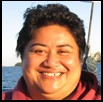
Liz Wilson, from Fiji, is currently pursuing an Interdisciplinary PhD at Dalhousie University that incorporates aspects of the Coastal CURA research. She recently completed her Masters program in Marine Management at Dalhousie University . Her masters research project was done in conjunction with a summer internship in 2007 with the Bay of Fundy Marine Research Centre, where she contributed to their ongoing projects.

Courtenay E. Parlee was drawn by the allure of the Atlantic Ocean in 2001 when she began her studies at Acadia University . Her fascination with First Nations, Métis and Inuit issues from a young age led her to pursue an undergraduate thesis on the policies and effects of Shubenacadie Residential School in Nova Scotia . While conducting this research, it became apparent that mediation, negotiation and arbitration are indispensable for reconciliation and settling disputes. Courtenay is studying to achieve a Masters in the Philosophy of Social Policy, with a specialization in Alternate Dispute Resolution. She will be working under the guidance of Dr. Melanie Wiber and Dr. Linda Neilson at the University of New Brunswick .

Velta Douglas is a Master's student in Education at the University of New Brunswick. She is working with Melanie Wiber and Maria Recchia to develop high school curriculum on integrated management issues for Saint John Harbour. Recently, this curriculum was tested in Saint John High and in Woodlawn Learning Center. The response of students has been very positive.

Melina Puley is a Masters Student at Dalhousie University; her thesis, entitled,
An examination of current factors affecting Aboriginal involvement in local-level integrated coastal resource management in Canada, will examine the current state of aboriginal involvement and explore what various project stakeholders perceive to have been constraining and enabling factors to achieving meaningful aboriginal involvement in the management process. National research findings will then be assessed for local relevance from an East Coast aboriginal community perspective and the applicability of findings to support their current integrated resource management initiative explored. This research will result in a wider understanding of aboriginal involvement in local-level integrated coastal resource management projects and aims to facilitate an exchange of knowledge and experience between communities and stakeholder groups. This, in turn, will hopefully help facilitate enhanced aboriginal involvement in the management of their traditional territories and local resources.
PAST STUDENTS
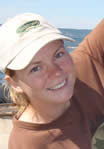
In the summer of 2007, Sarah Bood worked with the Fundy North Fishermen's Association to produce a short film Sharing the Waters: Saint John, NB that highlighted the impact coastal development projects have on the local inshore fishery of Saint John, New Brunswick. Among other things, she is is currently working on the capstone film for Coastal CURA, to be completed in August, 2010.

Jessica Burgoyne grew up in Mahone Bay , NS . Canoing and diving around the Mahone Bay islands was a daily event in past summers. She is currently working on an Undergraduate Honors degree in Geography at Saint Mary's University. In the future she intends to enroll in the Marine Affairs Program at Dalhousie University. Jessica worked on CURA research over the summer of 2008 and assisted with administrative duties from September to December 2008.

From April 2007 to June 2008, Robert Cameron helped with CURA research while completing his masters in the Department of International Development at Saint Mary's University. As a science teacher in Mexico , Robert had the opportunity to witness some of the environmental challenges and efforts of rural indigenous communities and various groups involved with sea turtle conservation. It was these experiences that piqued Robert's interest in development and community based natural resource management and led him to Saint Mary's University and the Coastal CURA.

Masters summer intern, 2007, Bob Capistrano searched databases and the internet for information related to community involvement in integrated coastal management at the international level. His research is feeding into the creation of a collection of examples of these initiatives that can be used as reference material for anyone interested in integrated management at the community level.

Elizabeth Lenc grew up in Barry's Bay, Ontario . Beth received a diploma in Medical and Legal Office Administration from St. Lawrence College in Kingston . She has always loved the East Coast and decided to pursue an education at Saint Mary's University. She is currently studying Anthropology and Psychology. Beth assisted the Coastal CURA partners with administration and communications over the summer of 2008.

Don Logan was eager to take part in the CURA's community management compendium research in summer 2007. As a Nova Scotian and proud Maritimer, he believes the CURA project is an important step for developing participatory management in the region and strengthening communities.

Courtney Nickerson grew up playing on the shores of Southern Nova Scotia - she has coastal waters streaming through her veins. Having grown up in a fishing community, her move to the coasts of Mexico and Costa Rica seemed natural. Pursuing a joint Honors in International Development and Anthropology at the University of New Brunswick has fostered her passion for the development of community based natural resource management. Over the summer of 2008, Courtenay conducted interviews with local inshore fishermen in NB as part of her internship work with the Coastal CURA.

Louie Porta worked with CURA partner MCPEI in summer 2007. As part of the "Restorative Fisheries Project" he worked on, Louie documented as many examples of pre-contact Mi'kmaq fisheries and economic activities as possible. This information was synthesized into an academic poster "A Chronological Account of Mi'kmaq Resource Utilization," and its corresponding paper, "How Historical Reflection Can Lead to Sustainable Resource Use For Everyone: A Case Study of the Mi'kmaq of Prince Edward Island".
smu.ca
|